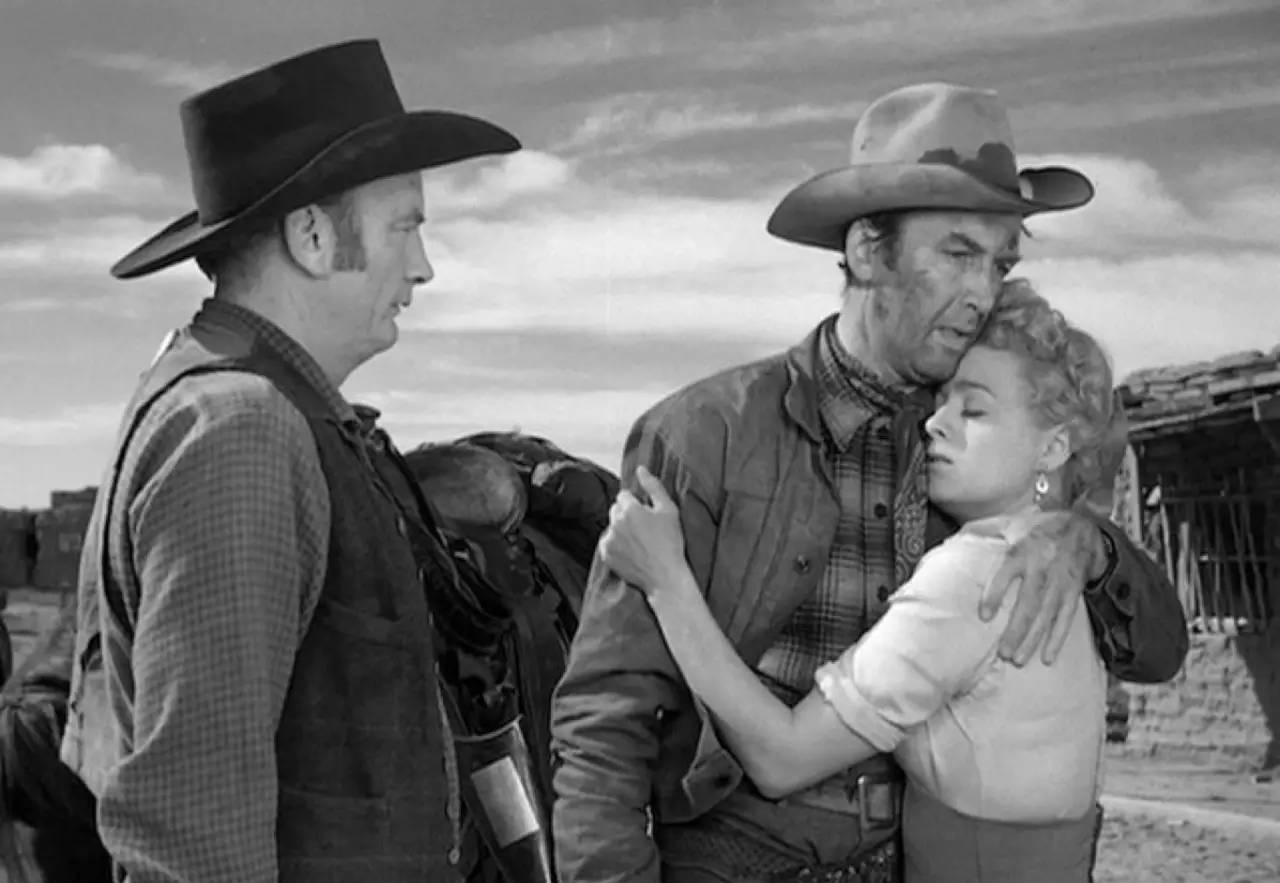Living with the movie for the 102nd day
Tuesday, March 14, 2017
Title: Winchester 73 Winchester '73 (1950), Anthony Mann
Nanjing, home

Today's title is straightforward: Martin Scorsese's favorite Western. It was indeed because of Martin Sr.'s Amway that I went to see Anthony Mann's Winchester '73. It's really a masterpiece. The plot and scenes are very fascinating. Scorsese saw in this Western the style of film noir, with gloomy psychological motivations and strong scene construction.
"Every time I watch Winchester 73, something like every time I watch Jacques Turner's Film Noir Beyond the Whirlpool, I can't tell exactly what the plot is, because every time it feels like watching a new film, it's never annoying, as if I don't know what direction the next film is going." 」 This is scorsese's original words (quoted from the Iris translation).
Anthony Mann was the first to make several film noirs, and his career began with eight collaborations with James Stewart, five of which were Westerns, including the famous Winchester 73 (1950), The Naked Spurs (1953), and The Man from Lalemie (1955). Mann's Westerner (1958), in collaboration with Gary Cooper, was also a top Western. Anthony Mann was also the original director of Starbacchus, and was initially fired by lead actor Kirk Douglas and replaced by Kubrick. He went on to direct another epic film, El Cid (1961).
The Winchester 73 is a famous gun, produced by the Winchester Company in 1873. It is mythologized in the movie as something close to a "dragon slaying knife", and everyone wants to get it, "Indians are willing to exchange their souls for it". Therefore, the popular translation of this movie is called "Hundred Battles Treasure Gun". The film opens with a shooting contest in Kansas Dodge City, where the prize is the gun, which Stewart's Lynn McAdam also came to win, but soon the gun fell into the hands of his nemesis, Henry Brown the Dutchman.
The original director of Winchester 73 was not Anthony Mann, but Fritz Lang. Lang wanted to design the gun as Stewart's only source of strength and reason to survive. But Mann sees Winchester 73 as a character who lets the gun fall from one person into the hands of another, and the plot flows. It's fascinating, there are two passages, the story leaves the protagonist aside and follows the gun, which is what Scorsese says, and the story is always new because the clues are concise but rich.
Everyone who gets "Winchester 73" in the film dies in a gunshot until it returns to Stewart, who should have him. This is where the film is very tough. The story revolves around honor, betrayal and revenge, and in the upright, gentle Stuart, we can sense a vague self-tribulation.
But the film also has a tender side, with a brilliant female character in it. The vast majority of Westerns are from a male perspective, the West is the world of men, and women are protected and "gazed". But all great Westerns have to have a great female character. In this film, the character is a bar singer who is fearless when men shoot at each other, and she is likable for her dignity, justice, and cheerfulness.
Truffaut once praised Anthony Mann as the Most Natural American director. Winchester 73, though less complex than Mann's subsequent films, can also give us a sense of the openness of the West. He integrates the fate of the protagonist and the psychology of the audience into the desolate and strange natural landscape.
As the men rode their horses through the vast forest of immortal pillars, the world was both thrilling and spectacular. The film was filmed in Messal, Arizona, and it is said that it is still the same way it is now.
As I traveled back and forth through the United States in 2013, I passed through the Midwest, including Arizona and Texas, where small towns were like sets that the crew had forgotten to dismantle after the Crew had withdrawn from filming. It seems to me that "the West is the real America" – everywhere else is imitating Europe from the cityscape to the name of the city, but the only way to look at the West is to go to the United States – just as some people think that "the Western is the real American movie".
It is very interesting that after the end of the Western Frontier, the Western was born; after the demise of the Western, the West was still like in the movie.
Week 15 Westworld
Monday, March 13, Wilderness Man Shane (1953), George Stevens
73 Winchester '73 (1950) (Tuesday) 14 March 14 (Anthony Mann).
……
Wei Xidi lives as usual · WeChat: iweixidi
【2016.12.3 - 2017.12.2】